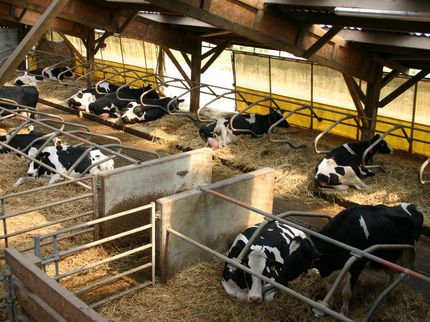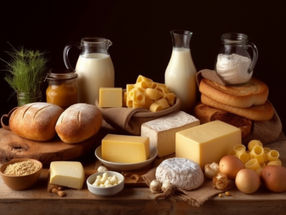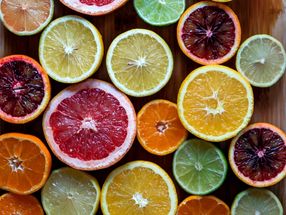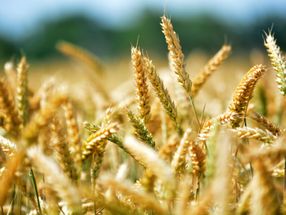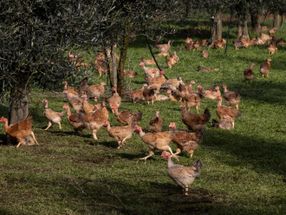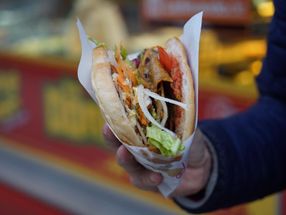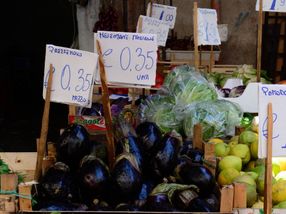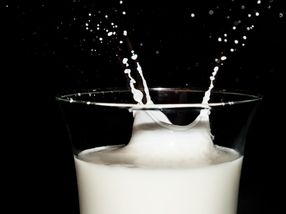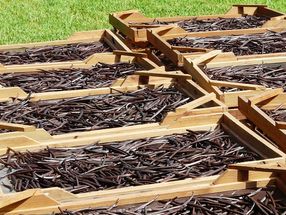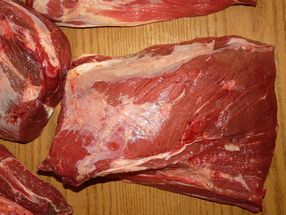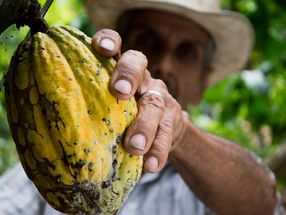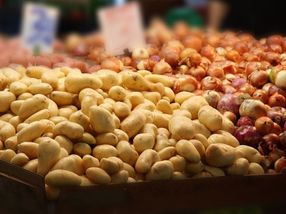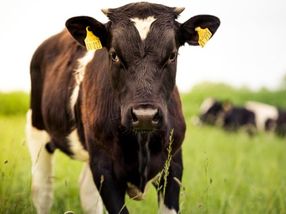Fonterra provides 2022/23 opening forecast Farmgate Milk Price and update on business performance
The opening forecast Farmgate milk Price for the 2022/23 season is set at $8.25 - $9.75 per kgMS, with a midpoint of $9.00 per kgMS.
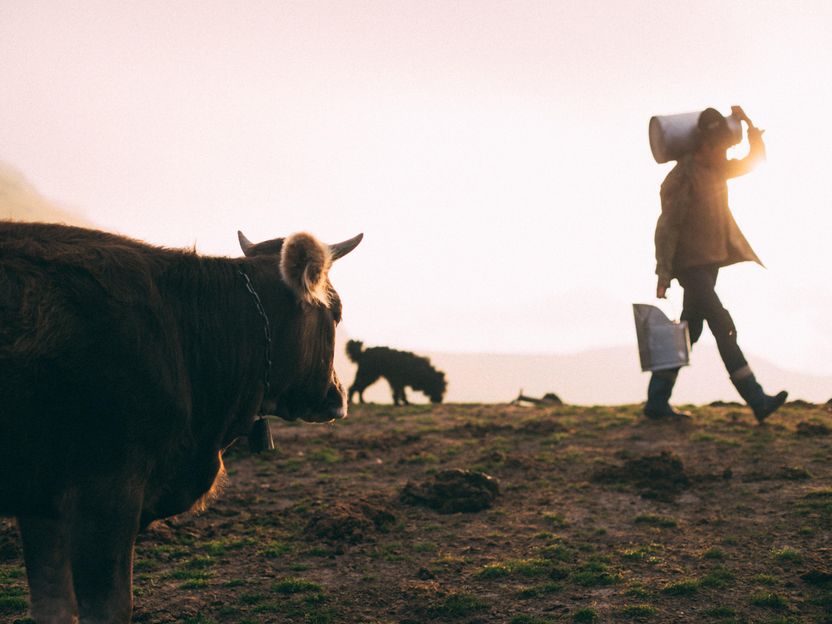
Photo by Mihail Macri on Unsplash
CEO Miles Hurrell says the strong opening forecast reflects continued demand for dairy coupled with constrained global supply.
“The long-term outlook for dairy remains positive, despite recent geopolitical and COVID-19 related events impacting global demand in the short-term.
“On the supply side, growth from key milk producing regions is expected to remain constrained as high feed, fertiliser and energy costs continue to impact production volumes.
“These demand and supply dynamics are expected to support dairy prices in the medium to long-term.
“However, we are operating in an increasingly volatile global environment and are managing a wider range of risks than usual.
“This includes the potential for further impacts from COVID-19, financial markets and foreign exchange volatility, global inflationary pressures, a tightening labour market, increasing interest rates, geopolitical events, as well as the possible impact on demand from higher dairy prices.
“This is why our 2022/23 forecast range is so wide at this point in the season.”
For the 2021/22 season, Fonterra has maintained its 2021/22 forecast Farmgate Milk Price of $9.10 - $9.50 per kgMS.
“At a midpoint of $9.30 per kgMS, this would be the highest forecast milk price in the Co-op’s history and would see us contribute almost $14 billion into the New Zealand economy through milk price payments.”
Business performance
For the nine months ending 30 April 2022, Fonterra’s sales volumes were down as a result of lower milk collections and the timing of sales due to short-term impacts on demand including the lockdowns in China, the economic crisis in Sri Lanka and the Russia-Ukraine conflict.
Total Group normalised EBIT was $825 million, down $134 million reflecting lower sales volumes, continued pressure on margins from the significantly higher milk price, on-going COVID-19 disruptions, and the rapid decline of the Sri Lankan Rupee.
This was also reflected in Fonterra’s Normalised Profit After Tax of $472 million, down $115 million and reported Profit After Tax of $472 million, down $131 million.
Commenting on Fonterra’s performance, Mr Hurrell says despite significant market disruption, the Co-op continued to deliver a strong milk price and solid earnings.
“As an exporter, many of the markets we operate in have been prone to sudden shocks, which can impact what we sell, where we sell it and when, but right now we’re feeling the impact of multiple events across multiple markets.
“We are actively managing the challenges arising from COVID-19 and other geopolitical and macroeconomic events. However, increasing market volatility and uncertainty, on-going supply chain disruptions and growing inflationary pressures have added increased complexity.
“I want to thank our employees for delivering a solid financial performance despite the challenging global conditions, and also our farmer owners, sharemilkers and contract milkers who are managing increasing costs on-farm.
“AMENA continued to deliver a strong performance. Normalised EBIT was $406 million, up 30% due to improved gross margins in our Ingredients channel, and a strong performance from our Chilean business.
“In Greater China, Ingredients continued to benefit from increased sales of higher margin products. However, normalised EBIT was down 17% to $317 million, due to continued pressure on our margins from the higher milk price, particularly in Foodservice, as well as the COVID-19 lockdowns. We also expect the impact of the lockdowns to show up in our fourth quarter results.
“Aside from some supermarkets, all restaurants and other food outlets were closed in Shanghai in early April to contain the Omicron outbreak. While restrictions have started to ease, a number of food outlets remain closed, while other cities across China are facing COVID-19 restrictions. The impacts of this, and the disruptions to supply chains, have been felt across the market and is reflected in our Greater China sales volumes which are down on the same time last year.
“APAC’s normalised EBIT was down 43% to $177 million. While our Australian business and Ingredients channel continued to perform well, this was more than offset by the unprecedented economic challenges in Sri Lanka, margin pressure from the higher milk price and other COVID-19 related challenges.
“While historically a good business for us, the significant deterioration of economic conditions in Sri Lanka has seen the rapid devaluation of the Sri Lankan Rupee against the US dollar.
“This means it takes more Sri Lankan Rupee to pay for product purchased from New Zealand, which is sold in US dollars, and has resulted in an $81 million adverse revaluation of our Sri Lankan business payables owing to New Zealand. This has been reflected in our normalised EBIT, which may continue to vary as Sri Lanka’s currency fluctuates.”
Mr Hurrell says the Co-op’s focus on financial discipline has put it in a good position to manage the impacts of these recent events.
“With over 95% of our milk contracted for the season, our strong balance sheet gives us the ability to hold higher inventory to manage the short-term impacts on demand and our sales profile.
“When combined with the increased value of our inventory, which is up due to the higher milk price, this has meant our working capital, and therefore debt, is higher than usual at this point in the season. We expect this to balance out over the course of the year.
“Total Group operating expenses have increased, up 3% to $1,632 million mainly due to inflationary pressures and COVID-19 supply chain disruptions which have resulted in higher distribution and storage costs.”
Commenting on the rest of the year, Mr Hurrell says the Co-op is maintaining its forecast earnings guidance of 25-35 cents per share.
“While favourable price relativities in the fourth quarter are positive for earnings, we expect continued pressure on our margins due to the higher milk price coupled with the normal seasonal profile of our business.”
Progress on strategy
Mr Hurrell says, despite facing additional challenges in the third quarter, the Co-op has continued to take steps towards its long-term strategy.
“Following the Government’s announcement that it would make the necessary legislative amendments to support our new Flexible Shareholding capital structure, the government consultation process is underway, and we expect the amendments to progress through Parliament this year.
“The Government’s aspirations for our industry are well aligned to the Co-op’s. We all want a high performing dairy industry, and a successful and innovative Fonterra is central to that.
“Fonterra and the Fonterra Co-operative Council are both making a submission to ensure the voice of the Co-op and its farmers are heard.
“We are continuing our ownership review of our Australian business and the divestment process for our Chilean business, Soprole, is underway. We’re taking our time to ensure the best outcomes for both businesses and remain confident on delivering on our intention to return around $1 billion of capital to our shareholders and unit holders by FY24.
“As part of our plan to grow our earnings by developing new innovative products and commercialising our IP, we launched Nurture in Singapore – a cultured milk beverage fortified with added vitamins and our probiotics, targeting the gut health market.
“We’ve also developed our thinking on the role our dairy expertise can play in addressing cognitive health for all ages. Consumers are becoming increasingly aware of the importance of mental health, and we have plans to launch new consumer products for improving cognition, sight and stress over the coming months.
“In sustainability, we have signaled our aspiration to be Net Zero by 2050, and we support the Government’s recently announced plan to reduce on-farm emissions through the new Centre for Climate Action on Agricultural Emissions.
“We believe methane is New Zealand’s greatest climate change challenge and finding a solution will be a game-changer. That’s why we recently announced we’re expanding the trial of methane-reducing seaweed as a supplementary feed for cows.
“Lab trials have shown the seaweed has significant potential to reduce emissions and, if on-farm trials are a success, our partnership with Sea Forest means our farmers will be at the front of the queue. This is just one of a number of initiatives we have underway in this area.
“We have also announced the trial of an electric milk tanker – the first of its kind in New Zealand.”

